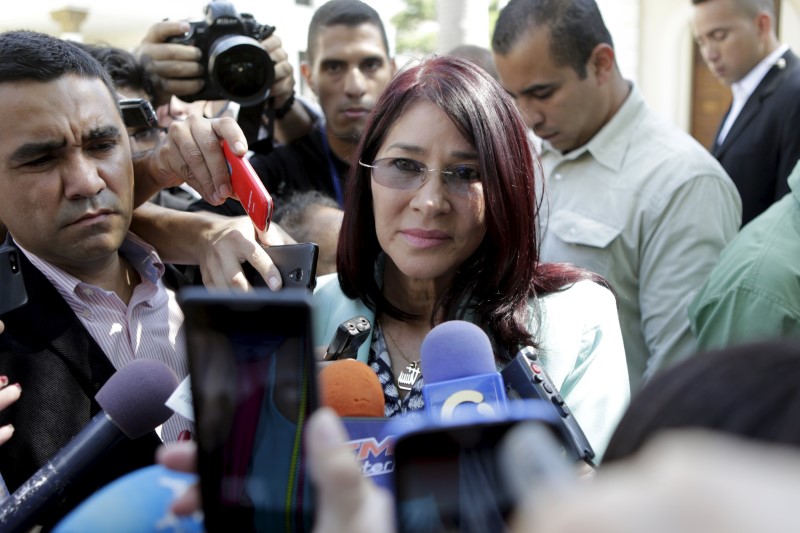By Nate Raymond
NEW YORK (Reuters) - Two nephews of Venezuela's first lady accused of conspiring to import cocaine into the United States say they feared for their lives after being arrested at a Haiti hotel last year as they thought they were being kidnapped due to their political ties.
Franqui Francisco Flores de Freitas, 30, and Efrain Antonio Campo Flores, 29, made that claim in papers filed on Friday in Manhattan federal court as they sought the suppression of statements they made to U.S. authorities after their arrest.
The court filings mark the first time the nephews of Venezuelan President Nicolas Maduro's wife, Cilia Flores, commented substantively on their arrests in November and the U.S. investigation.
In first-person declarations, the men said that during a meeting in a hotel room in Port-au-Prince, Haiti, about 20 heavily armed men with no visible identification entered their room and abducted them.
"Given my familial relationship with senior members of the Venezuelan government, I believed that we were potential targets for an extortionate scheme or other violent attempt at retribution against my family and country," Campo Flores said.
Only after being placed on an airplane several hours later did anyone identify themselves as being with the U.S. Drug Enforcement Administration or inform them that they had been charged, they said.
Told they faced up to life in prison if they did not cooperate, both men's lawyers said they spoke with the agents without fully understanding their U.S. right to remain silent. Their lawyers want those statements suppressed.
A spokesman for Manhattan U.S. Attorney Preet Bharara, whose office is handling the case, declined to comment.
The case, which arose from a DEA sting operation, is one of a series of enforcement actions and investigations by U.S. authorities that have linked individuals connected to the Venezuelan government to drug trafficking.
The nephews' case has been an embarrassment for Maduro, who has been facing a political and economic crisis in Venezuela. Flores in January called her nephews' arrest a "kidnapping."
A U.S. law enforcement source has said the nephews met a DEA informant in Honduras in October and sought help sending 800 kg (1,764 pounds) of cocaine to the United States via an airport on the Honduran island of Roatan.

Prosecutors last week unveiled charges against a third person, a Honduran named Roberto De Jesus Soto Garcia, for agreeing to facilitate the cocaine's arrival at a Honduran airport on its way to the United States.